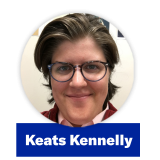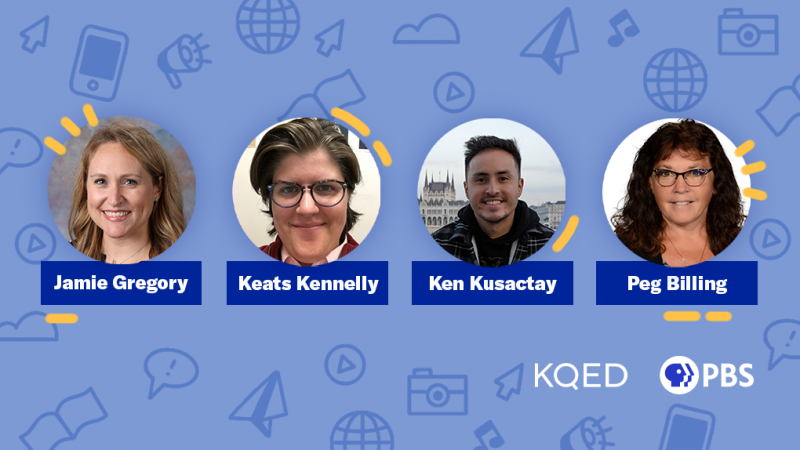Most teachers understand that media literacy is important to integrate into their classrooms. But the reality is that with all that teachers are going through right now, it can feel like a burden that they don’t have the time or energy for. So when we asked PBS certified media literacy educators what motivates them, it’s interesting that they consistently mentioned the joy and satisfaction they get from teaching students how to analyze, evaluate and create effective media. In short, teaching media literacy is fun.
Here’s some insights from four educators who recently became PBS media literacy certified.
Jamie Gregory

Jamie Gregory is a high school librarian and journalism teacher at Christ Church Episcopal School in Greenville, SC.
“I love that media instruction and creation is so relevant to students’ lives. Sometimes education, particularly in upper grades, focuses on content that is esoteric or abstract, which is great and necessary. But with media literacy instruction, students can focus on skills and concepts which they encounter all day long, every day. Media educators focus on how to help students interpret what they are naturally doing, which is consuming media, but in a smarter, safer and more beneficial way.”
Jamie received the 2021 Media Literacy Teacher Award from the National Association for Media Literacy Education. We’re so proud of you!
Keats Kennelly

Keats Kennelly teaches English, research methods, and science at Whittle School & Studios in Washington, D.C.
“We are now firmly in the Information Age. Now that we have so much information awaiting us at our fingertips, I truly enjoy being able to show students how to make media to break down and communicate that information in a creative and engaging way. Gone is the PowerPoint of yesteryear. As we progress into the future, media literacy will become as vital as literacy itself.”
Check out Keat’s wonderful website to learn more about their impressive work and thoughts on differentiated learning, classroom collaboration and information literacy.


